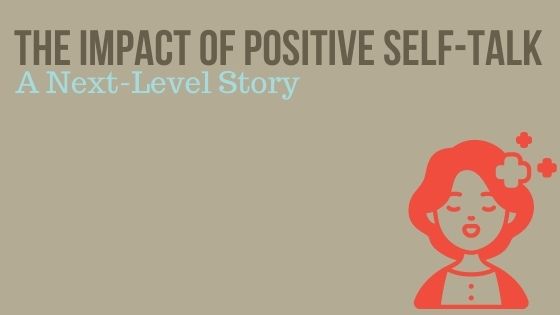Today’s blog is written by Malynn Utzinger, Director of Integrative Practices, and Tim Weitzel, ESI Architect at Promega. Reposted from the Promega Connections blog with permission.
Last month in this series, we posed to you that the most important decision you’ll ever make is the one about how to respond to the circumstances of your life – the story you tell yourself when the rough patches of life show up. Because of our brains’ wiring, we tend to spin self-defensive and blaming stories as a first line of defense until we learn to pause, check in with ourselves, and cultivate a narrative of more generative possibilities.
This month, we promised you a next-level story that shows the outer impact that happened when one person changed his self-talk.
As a reminder, here are the four basic parts to effective self-talk:
- Stop telling yourself negative stories (i.e., making judgments) about the other person’s bad character and/or their bad intentions towards you.
- Stop imaginings centered around self-pity, powerlessness, and/or that the world is against you.
- Start rewriting your inner stories, being as objective and realistic as possible.
- Start using language that sparks your vision and thinking in the direction that you want your brain to grow.
A few weeks before COVID had us all working at home, Promega R&D Directors gathered over a few days to exchange ideas. One director had just presented, and the group was now discussing the project. One Senior Director disagreed with this project’s priority. Normally, this Senior Director would remain silent during the meeting and then influence one-on-one behind the scenes. His typical self-talk regarding such situations went something like, “If I say what is on my mind, the whole group will likely deteriorate into reactive arguing, hurting each other’s feelings, creating tension, and defending positions. I do not like this dynamic and do not know how to manage it. It’s better to remain silent and express my disagreement one person at a time.”
This time, however, the Chair of the meeting had set ground rules to encourage the practice of ESI. With these ground rules in mind, the Senior Director chose self-talk (his inner story) that had a new tone: “It is important that we are able to disagree and have productive dialogue, and I trust my ability to set the stage and facilitate this. Given the numerous possible benefits of my speaking up, the risk is well worth it.” This led to him framing up a statement referencing each of the ESI ground rules previously laid out by the Chair and imbued with a fresh sense of candor.
“I have been sitting here checking in with myself,” he said slowly, “trying to listen with empathy, accepting multiple perspectives and trying to gather the courage and compassion to say what I feel needs to be said. I think we are placing too much effort on this project, spending too much time on it for what it is going to be worth to us.” With the rest of his time, he went on to explain why.
The Chair, who relayed to us this story with a reflective smile on his face, said that normally in R&D meetings when someone offers criticism of a project that a lot of directors have invested energy and resources into, it gets people riled-up and defensive. Let’s face it, we all know what extremes our thinking can take us to in these moments—at times all the way to “my life depends on me countering this criticism!” The typical self-talk for a scientist when her or his project is criticized is something like, “My project is being attacked! I need to defend it. If I do not defend it successfully, I am going to lose credibility. Then all my future projects are at risk.”
This time, the Senior Director’s skill and sensitivity—starting with his decision to think differently about both the situation and his response to it –seemed to inspire people to think differently about it. Instead of launching into a defense, the presenter and his collaborators responded in kind to the Senior Director. His thinking, choices and subsequent behaviors had been proven to be contagious.
The presenters seemed to mirror the senior director’s approach—checking in with themselves and finding the courage to choose to think about the feedback differently. They then shared their responses respectfully and in the spirit of dialogue. The result was a highly productive 20-minute learning conversation that fostered lasting connections and future productive conversations. They completely avoided the much too typical 60-minute unproductive argument that fosters resentment and mistrust and sets the stage for future unproductive conversations.
How we choose to think about what happens is the most important decision we make, because it is the beginning of everything else that happens, and it is the soil upon which our future selves grow. Once we start to enrich that soil with the healthy nutrients that lead to a mindset contentment, generosity, learning and possibility, we start to build our absorptive armor, which serves not to keep life out, but rather to allow us to take in more of life without the mortal injury. Rather than feeling perpetually attacked or blocked from life’s goodness, we become curious about all the conditions of life—more open to what is true for ourselves and others, to open to our opportunities to learn, more trusting in the worth of what we have to offer life in return. This kind of armor connects us to ourselves, to others, and to a bigger story with room for all of us to participate.
WOULD YOU LIKE TO SEE MORE ARTICLES LIKE THIS? SUBSCRIBE TO THE ISHI BLOG BELOW!
SUBSCRIBE NOW!


